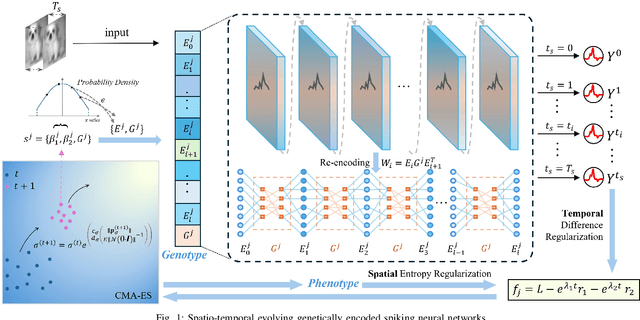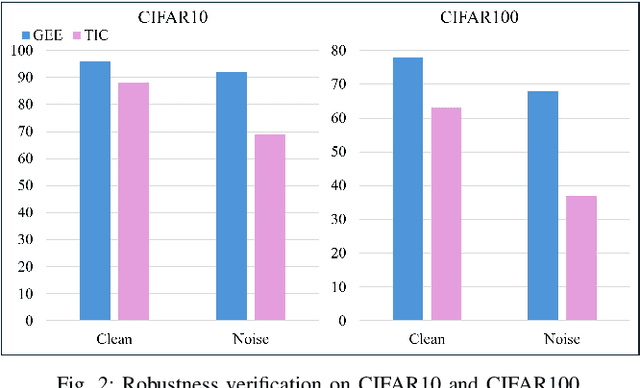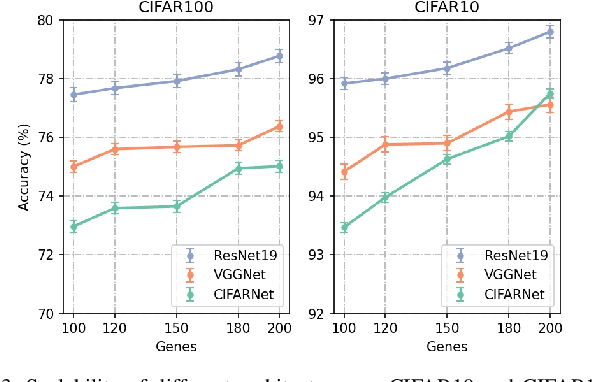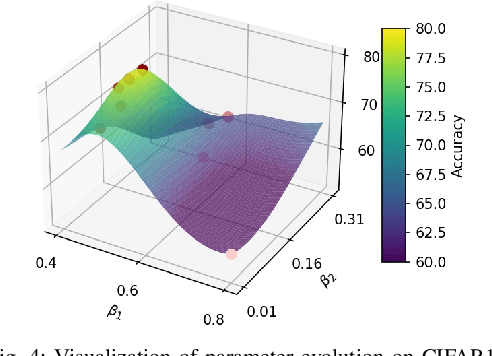Evolving Efficient Genetic Encoding for Deep Spiking Neural Networks
Paper and Code
Nov 11, 2024



By exploiting discrete signal processing and simulating brain neuron communication, Spiking Neural Networks (SNNs) offer a low-energy alternative to Artificial Neural Networks (ANNs). However, existing SNN models, still face high computational costs due to the numerous time steps as well as network depth and scale. The tens of billions of neurons and trillions of synapses in the human brain are developed from only 20,000 genes, which inspires us to design an efficient genetic encoding strategy that dynamic evolves to regulate large-scale deep SNNs at low cost. Therefore, we first propose a genetically scaled SNN encoding scheme that incorporates globally shared genetic interactions to indirectly optimize neuronal encoding instead of weight, which obviously brings about reductions in parameters and energy consumption. Then, a spatio-temporal evolutionary framework is designed to optimize the inherently initial wiring rules. Two dynamic regularization operators in the fitness function evolve the neuronal encoding to a suitable distribution and enhance information quality of the genetic interaction respectively, substantially accelerating evolutionary speed and improving efficiency. Experiments show that our approach compresses parameters by approximately 50\% to 80\%, while outperforming models on the same architectures by 0.21\% to 4.38\% on CIFAR-10, CIFAR-100 and ImageNet. In summary, the consistent trends of the proposed genetically encoded spatio-temporal evolution across different datasets and architectures highlight its significant enhancements in terms of efficiency, broad scalability and robustness, demonstrating the advantages of the brain-inspired evolutionary genetic coding for SNN optimization.
 Add to Chrome
Add to Chrome Add to Firefox
Add to Firefox Add to Edge
Add to Edge